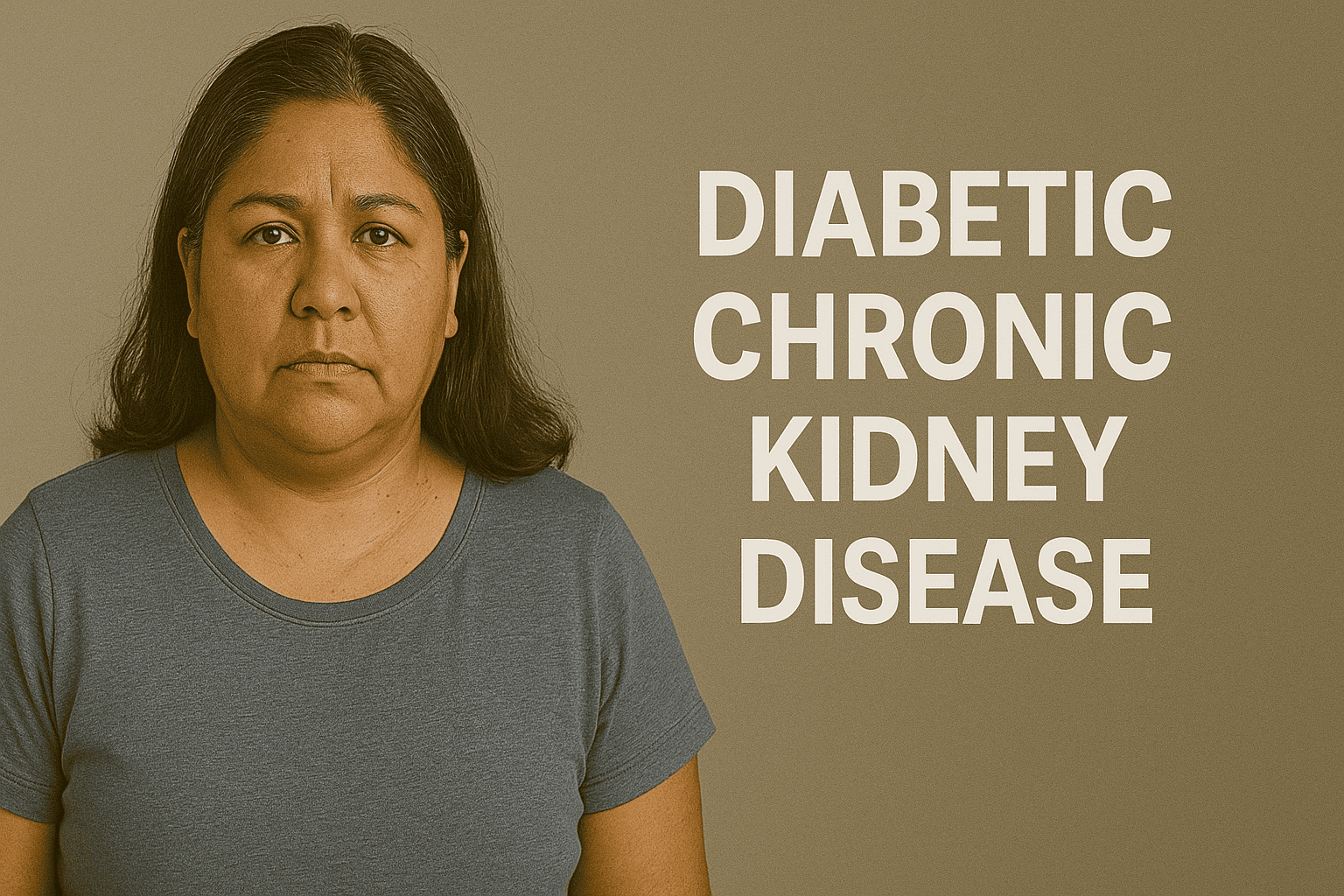Updated on: July 29, 2025
Chronic kidney disease (CKD) is one of the most serious complications of Type 2 Diabetes Mellitus (T2DM), affecting nearly 40% of all diabetic patients. Accurate diagnosis and ICD-10 coding of diabetic CKD is crucial for quality care, risk adjustment, and reimbursement. The code E11.22 is used when a patient with Type 2 diabetes develops CKD that is attributed to diabetes.
This article guides you through using E11.22 correctly, pairing it with the appropriate CKD stage codes (N18.x), and documenting it properly for both clinical and billing purposes.
What Is ICD-10 Code E11.22?
Use E11.22 when:
-
The patient has Type 2 Diabetes Mellitus
-
There is confirmed Chronic Kidney Disease (CKD)
-
The CKD is caused by or attributed to diabetes, not another cause (e.g., hypertension or glomerulonephritis)
Important: E11.22 must always be paired with a secondary CKD stage code (N18.x) to indicate severity.
Required Secondary Codes with E11.22
| CKD Stage | ICD-10 Code |
|---|---|
| Stage 1 – Normal GFR | N18.1 |
| Stage 2 – Mild | N18.2 |
| Stage 3a – Moderate | N18.31 |
| Stage 3b – Moderate | N18.32 |
| Stage 4 – Severe | N18.4 |
| Stage 5 – Kidney failure | N18.5 |
| ESRD – Dialysis dependent | N18.6 |
Clinical Scenario Examples
| Clinical Scenario | Codes to Use |
|---|---|
| T2DM with CKD Stage 3b | E11.22 + N18.32 |
| T2DM with CKD Stage 4 and anemia | E11.22 + N18.4 + D63.1 |
| T2DM with CKD Stage 5 on dialysis | E11.22 + N18.6 + Z99.2 |
| T2DM with nephropathy but no CKD | Use E11.21 instead |
| CKD due to hypertension, not diabetes | I12.9 + N18.x (not E11.22) |
Documentation Guidelines for E11.22
To support this code, your clinical note should include:
-
Diagnosis of Type 2 diabetes mellitus
-
Diagnosis of CKD with staging (based on eGFR values)
-
Explicit linkage: “CKD due to diabetes”, “diabetic nephropathy,” or “diabetic CKD”
-
Lab values like eGFR, creatinine, urine albumin-to-creatinine ratio
-
Treatment plan and monitoring strategy
Example Chart Note:
“Patient with long-standing Type 2 diabetes (dx 2012), currently on metformin and empagliflozin. Labs show eGFR 39 (CKD Stage 3b). CKD is consistent with diabetic nephropathy. Diagnosis: Type 2 diabetes with diabetic CKD (E11.22), Stage 3b CKD (N18.32). Will refer to nephrology.”
SOAP Note Example – E11.22 + N18.32
-
S: “Fatigue, swelling in legs, frequent urination.”
-
O: BP 138/88, eGFR 39, A1c 7.3%, BUN 28, creatinine 2.1
-
A: Type 2 DM with diabetic CKD Stage 3b (E11.22 + N18.32)
-
P: Continue metformin, monitor eGFR quarterly, add ACE inhibitor, nephrology referral, low-protein diet
Monitoring Parameters to Document
| Lab/Test | Frequency |
|---|---|
| eGFR | Every 3–6 months |
| Urine ACR (albumin:creatinine ratio) | Annually |
| HbA1c | Every 3–6 months |
| Electrolytes, BUN, creatinine | Every 3–6 months |
| BP and weight | Every visit |
Treatment Considerations
| Category | Options |
|---|---|
| Glucose management | SGLT2 inhibitors (e.g., empagliflozin), insulin |
| BP control | ACE inhibitors, ARBs |
| Dietary intervention | Low-protein, low-sodium diet |
| CKD progression slowing | Avoid NSAIDs, monitor nephrotoxic agents |
| Referral | Nephrology at Stage 3 or above |
Related Codes Often Paired with E11.22
| Clinical Detail | ICD-10 Code |
|---|---|
| CKD Stage 3a | N18.31 |
| CKD Stage 3b | N18.32 |
| CKD Stage 4 | N18.4 |
| ESRD requiring dialysis | N18.6 + Z99.2 |
| Proteinuria | R80.9 |
| Anemia of CKD | D63.1 |
| Hypertension with CKD | I12.9 |
Coding Pitfalls to Avoid
| Mistake | Correct Action |
|---|---|
| Using E11.9 when CKD is present | Use E11.22 instead |
| Forgetting to add N18.x CKD stage code | Always pair E11.22 with CKD stage code |
| Documenting “diabetes and CKD” without linking | Must state “CKD due to diabetes” or similar |
| Using Z79.4 for insulin use without E11.22 | Always pair chronic use codes appropriately |
FAQs
Can E11.22 be the primary diagnosis?
Yes. Especially in outpatient nephrology or primary care settings, E11.22 can be the primary diagnosis when diabetic CKD is the main reason for the visit.
What if CKD is due to both hypertension and diabetes?
Use E11.22 + I12.9 + N18.x, with documentation linking both causes.
Should I still code Z79.4 (long-term insulin use)?
Yes, if the patient is on insulin. It supplements the chronic diabetes code.
How DocScrib Simplifies Diabetic CKD Documentation
With DocScrib’s AI-powered platform, you can:
✅ Automatically detect diabetes-linked CKD from labs and notes
✅ Generate precise ICD-10 code pairs like E11.22 + N18.4
✅ Auto-populate eGFR tracking, A1c monitoring, and treatment plans
✅ Instantly flag missing links in documentation (e.g., “CKD due to diabetes”)
🎯 Book your free DocScrib demo and take the pain out of chronic disease coding.
Conclusion
ICD-10 Code E11.22 is essential for documenting Type 2 Diabetes with Chronic Kidney Disease, one of the most high-risk comorbidities in primary care. With appropriate pairing of CKD stage codes and detailed clinical documentation, providers can ensure both compliance and optimal care. DocScrib helps you automate, accelerate, and safeguard this process—every time.
